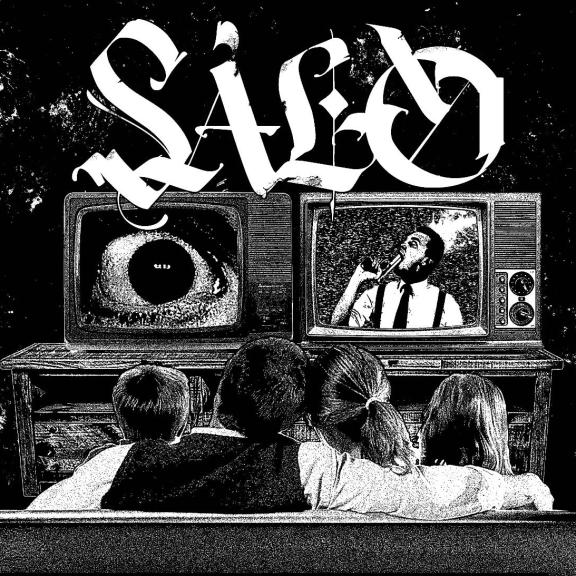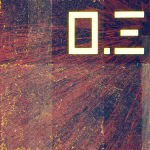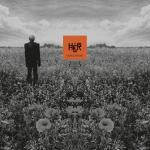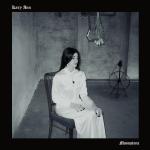After the Sortez Vos Morts EP released in 2021, Salò, a black metal project tinged with indus and crust, emerges from the shadows with its first full-length: L'Appel du Néant, released on 23 February. "This album is not meant to be loved", we're told. But can you love something that isn't meant to be loved? Is it possible to love a creation that is intended to reflect the malaise, shame, ugliness or hideousness of humanity and which, in order to be a mirror of this, must also be repulsive and distorted?
The question arises on first listen, of course, as the first sounds to emerge from our speakers are not music but the beginning of a recorded assault. It's clear that this album is going to be a polymorphous creature that will take the hideous form of all the vices of our species, against a backdrop of dissonant melodies that are at their most intense from start to finish. The guitars are as suffocating as the oppressions, just as HCT's cries on vocals are as desperate as those of the victims.
On Un homme ça ne s'empêche, for example, the listener sinks into an anguishing heaviness of sound against a backdrop of machismo, or gets bogged down in hate-filled trenches by samples rattling their rifles and aiming for heads on J'affronte la Mort (which invites Diego Janson from Karras for the occasion) and the very violent Il Faut qu'il Crèvent, which drowns us in blood with its devastating riffs. The album is an uncontrollable ball of nerves that only calms down to let its many literary and cinematic references speak for themselves (George Orwell's 1984 on Liberté Surannée, for example, which depicts a future deprived of freedoms as dark as it is irredeemable).
This infinitely dark, degenerative vision of our present and future society is leading us towards a certain end of the world, and it is with a brutal but beautiful melancholy that this abyss in which our cadaverous ghosts lie closes in on the last two tracks (Et Pourtant J'essaie and La Cendre et le Sang), on which Marion Leclercq (Mütterlein) lays down her petrifyingly beautiful howls from another time.
That's enough to answer our first question: yes, we definitely enjoy losing ourselves in this endless darkness of abysmal violence. It's wild, it's rebellious, it's an outlet and it's beautiful, so if it can help us get through the fog we're already in, we're all for it.





